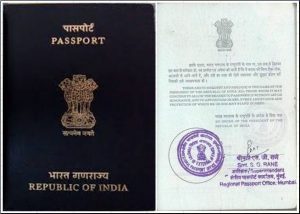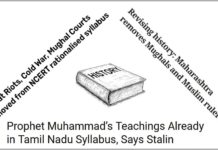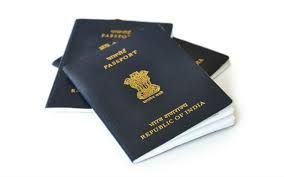http://www.freepressjournal.in/analysis/passports-when-the-best-get-knocked-down/1229747
Is the passport being degraded as an identity document?
— By | Mar 01, 2018 08:57 am
Last week, the government came out with a startling notification – that passports would now be issued without the mandatory police verification. Ostensibly, this was meant to tell people that the government was easing processes. That may even be the actual intent.
 But look closer, and the government notification suggests a blind-spot among policymakers. The announcement suggests that it is okay to dismantle the most reliable form of identification in the country. There’s nothing wrong with that if another equally reliable system were put in place instead. But to demolish an existing order without having an alternative smacks of shortsightedness and caprice.
But look closer, and the government notification suggests a blind-spot among policymakers. The announcement suggests that it is okay to dismantle the most reliable form of identification in the country. There’s nothing wrong with that if another equally reliable system were put in place instead. But to demolish an existing order without having an alternative smacks of shortsightedness and caprice.
In the absence of another reliable system of identification, the government is in effect demolishing a time-tested institutional process for identifying Indian citizens. In its absence, it will be easier now to create a ghost register of profiles of people who could be called citizens. With such a ghost register, some government may one day choose to transfer subsidy benefits to these ghost profiles, thus salting away money that India’s tax payers have paid.
To appreciate the situation better, it is first important to separate the concept of identification from authentication (http://www.asiaconverge.com/2018/02/does-aadhaar-identify-or-merely-authenticate/). When I give my debit card to my wife and she withdraws money from an ATM using my card and its ATM-PIN, the system authenticates her, because she has used the right numbers and the chip embedded card. The system does not know whether it is me, or my wife, or even my father who is using the ATM machine with my card. All it knows is that since the PIN was right, the card was right, the transaction should be allowed. The same happens when I give my email password to my secretary to reply to emails on my behalf. The emails go out in my name, though I have not sent out any of the messages. My username and password were authenticated. I have not been identified, but access to my email has been allowed because it has been authenticated.
Compare this with what used to happen in banks when a person walked in to open an account. The person submitted to the bank documents which stated who he is and where he stays. But the banker is not satisfied. He wants two people to identify the person, and their signatures are appended to the account opening form as introducers. That is called identification, because it is not based on papers alone. The people who have identified the new account-holder are also listed in the documents as identifiers. In case the person turns out to be an imposter, the two identifiers are also hauled up by the law enforcement authorities for providing false testimony, and possibly even for fraud.
That is what the election card enumerators do. They get confirmation from the neighbours about the identity of a person who wants an election card.
Of all these forms of identification, the passport ranks highest as proof of identify – at least in India. That is why, each passport even comes with the assurance of the highest office in the land – the President (see image alongside).
However, last week, the government announced that henceforth applicants for passports would be checked against the national list of criminals, and if the applicant’s name did not appear on that list, he or she could be considered as being eligible for receiving a passport. It said that it planned to merge the process with its Crime and Criminal Tracking Network and Systems (CCTNS),
Respectfully, but very firmly, this author disagrees. The list of criminals is one which only lists out undesirables. It does not identify the applicant, which a police verification does. Hence it is frightening to hear of Union Home Secretary Rajiv Mehrishi being quoted by media saying that the CCTNS, an exhaustive national database of crimes and criminals, was expected to be linked with the passport service of the External Affairs Ministry. His ministry says that the CCTNS will check the past history and background of the applicants with a single click. Shouldn’t someone have informed him that the CCTNS is for identifying criminals? Most civilians will not even feature on that database. And that includes any infiltrator from another country who may not be a criminal, but is not a citizen either.
Clearly, some bureaucrat has mixed up elimination with positive identification. That official must be either high on marijuana or should be sacked for sheer incompetence. By doing away with the police verification, the government is actually doing away with identification altogether. That is positively dangerous. And since the new process can allow the grant of a passport to a person who is not a citizen, the move could be called anti-national and may even be tantamount to treason.
The new system that is being proposed would hold nobody guilty for issuing a passport to a person who is not a citizen of this country. It thus allows for one of the crassest systems of identification that any country can adopt.
This is the very reason why many people objected to the address page being removed from the passport. Why should that be so? Identification is often linked to a place where the person can normally be found or contacted. There was already a provision for effecting a change in address. Why remove it? By removing the address page, you allow the person to apply for a bank account anywhere. It makes the creation of bank accounts too that much simpler. With a ghost identify, and with no address, the person can open an account anywhere he wants. And since the latest account number overwrites the previous account number in the NPCI database (http://www.asiaconverge.com/2018/02/how-aadhaar-and-npci-together-open-the-door-to-major-frauds-and-impersonations/) it would make the job of siphoning out subsidy payments from the exchequer that much easier.
Surely that could not have been the government’s intent!
What is saddening is that this is being proposed at a time when the issue of Aadhaar and identification is being argued before the Supreme Court. By abolishing police checks, the government is thus destroying the most important document for proving citizenship in India.
Such crucial decisions should not be made though an executive order. They need to be vetted by Parliament, possibly even through judicial approval. This is because removing a layer of the process can actually render ineffective the entire basis on which citizenship to India can be cross-checked. Without such a layer, it will be possible for any infiltrator to declare himself a citizen of India.
It would make a mockery of security, of entitlements, and transfer of funds from the exchequer to a ghost list of beneficiaries. It would make the country the laughing stock of the world.










































COMMENTS